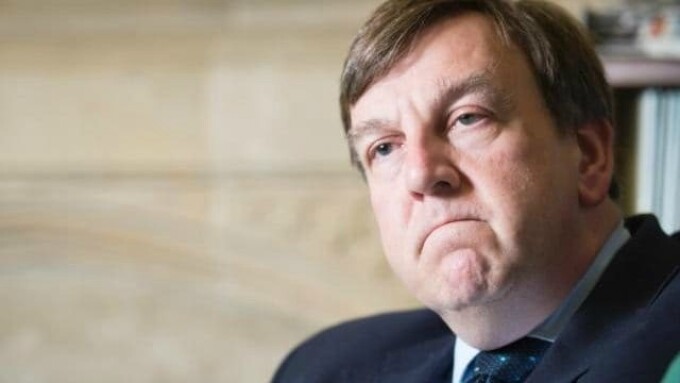LONDON — The politician who introduced the U.K.’s Digital Economy Bill is worried that a porn filter mandate might be useless if the piece of legislation doesn’t include social media networks like Twitter.
"One of the main ways in which young people are now exposed to pornography is through social media such as Twitter, and I do not really see that the bill will do anything to stop that happening," conservative MP and former minister John Whittingdale told Parliament on Monday.
Members of the House of Commons on Monday approved the third reading of the Digital Economy Bill, effectively sending the draft legislation to the House of Lords for consideration.
The Digital Economy Bill contains measures to bring in age verification for adult sites and withdraws payment services from sites, including foreign ones, that do not comply. The government also has given the British Board of Film Classification (BBFC) new powers to enforce rules over the types of sex acts that are distributed over the web.
Matt Hancock, who acts as minister of state for the Department for Culture, Media and Sport, said Monday that social media networks wouldn't be affected by the bill's passage because they're a "difficult technical nut to crack."
"There is a difference between websites that provide commercial pornography and platforms on which others can upload images," Hancock told members of Parliament. "And getting this right around that second group is much harder than around the first group.
"We are legislating to prevent as much as possible of that inadvertent viewing by those who are not desperately actively seeking to do so. I appreciate that the bill is not a utopia, but it is a very important step forward."
Many question whether social network sites like Twitter, Tumblr or Reddit would make significant structural changes at the behest of U.K. authorities.
Twitter's rules curtail the use of "pornographic or excessively violent media" in profile or header images, but the portal allows posts to contain explicit adult content.
The amount of explicit content on the platform has grown since June, when Twitter allowed users to post videos lasting up to two minutes and 20 seconds.
Pictured: John Whittingdale






